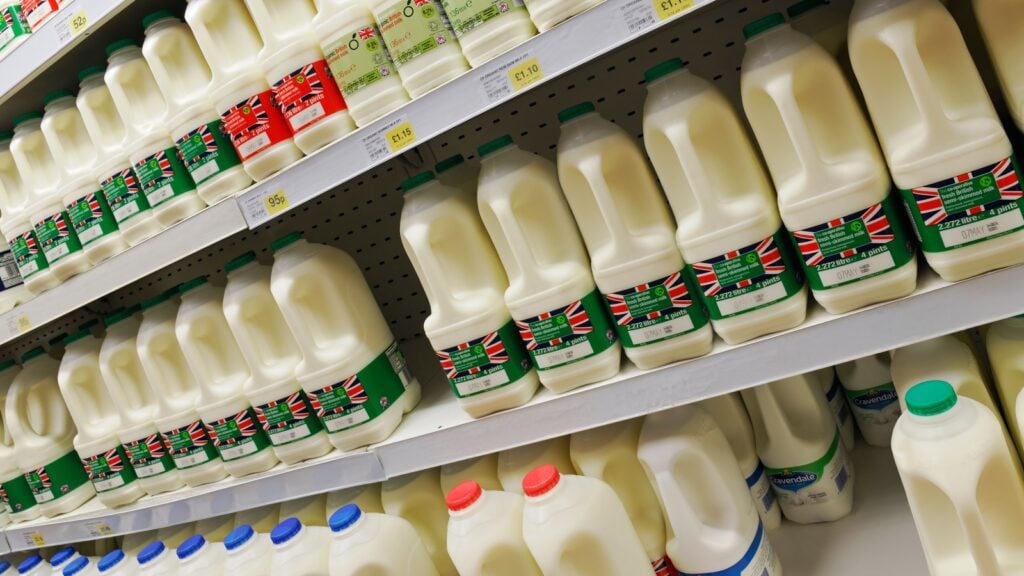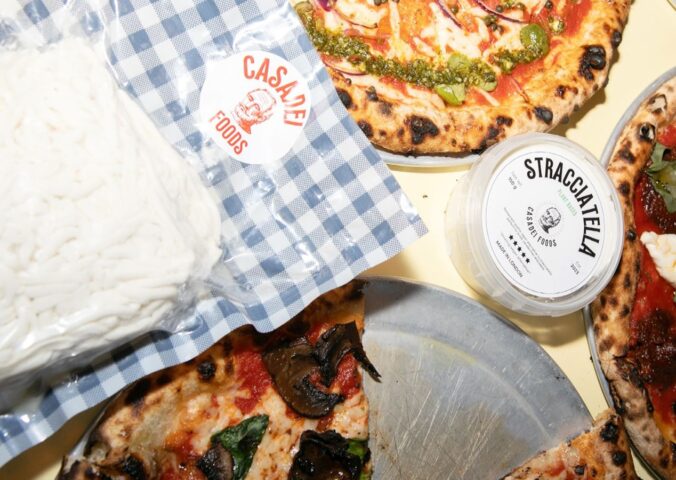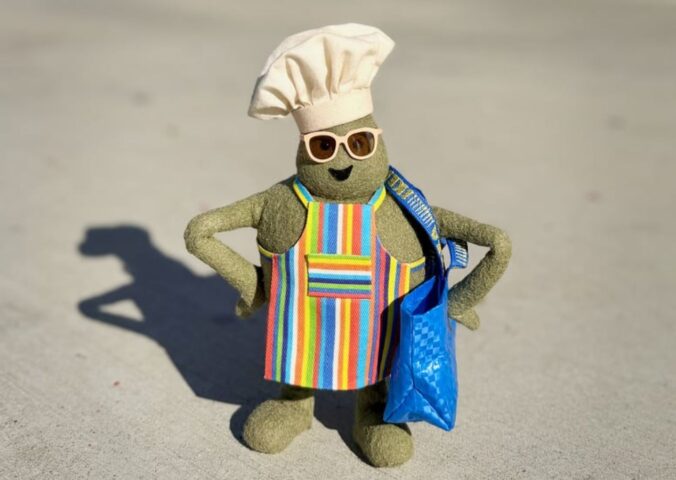Pints of milk are being sold for more than £1 in the UK, prompting some shoppers to claim they can no longer justify buying it.
Sainsbury’s has revealed that single pints in its smaller stores cost £1.05. Larger stores are charging 85p, the same as Tesco, with both price-matching discount supermarket chain Aldi.
Dairy producers have claimed that prices have increased in line with inflation and because of rising energy prices. They have also cited costs of animal feed and packaging, which are estimated to have risen by up to 40 percent.
Consumers are reportedly taking to social media to threaten a move to plant-based dairy in a bid to save money. Though according to one study, one third of Brits already claim to drink non-dairy milk regularly.
Dairy appears to be mirroring meat sales, as some research suggests 28 percent of UK adults are now skipping animal protein to save money on their grocery shopping.
The spiraling cost of dairy milk
The Office for National Statistics states that a pint of milk cost 42p in July 2021. By May of this year, it had risen by 10p.
All UK supermarkets were forced to significantly increase their prices in July, after dairy farmers asked for help to turn a profit.
Dairy producers claim that milk production now costs 44p per liter, which has shrunk their profit margins significantly. Just last year, it reportedly cost 23p per liter. The costs have been passed onto consumers, creating shopper dissatisfaction and contributing to fears of food poverty.
In July, when food inflation hit 10 percent, it was estimated to represent a £454 rise in annual food bills for the average household. This has since increased further as inflation reached 12.8 percent, with experts warning that a record-breaking 15 percent could be seen by the end of summer.
Meat and dairy are both considered to be major drivers of food inflation.
Plant-based diets as the economical choice
As meat and dairy costs rise, some vegan alternatives offer better value. For example, a liter of oat milk costs 89p from Aldi. This makes it around 51p per pint, less than half the cost of dairy milk.
Consumers are also able to make their own cost-effective plant milks, either using traditional methods with nut milk bags, or newly released gadgets, although the latter requires a significant initial investment.
It’s not just the UK witnessing a reversal of pricing fortunes. Last month, Germany revealed that oat milk was cheaper to buy than cow’s milk. Due to rapidly increasing dairy costs and steady plant milk pricing, oat and almond varieties both came in cheaper to buy than conventional milk.
Similarly, some plant-based meat is now cheaper per kilogram than animal meat in the Netherlands. Prices are favorable across a range of comparable products, including burgers, mince, and chicken-style pieces.
Is dairy on its last legs?
Pricing aside, the dairy sector faces threats from animal welfare activists, who are keen to see an end to the practice of forcibly impregnating cows for their milk.
Animal Equality UK is currently campaigning for a systematic overhaul of the food system, with beloved Harry Potter actor Miriam Margolyes fronting the endeavor. Having been shown footage of dairy production in progress at a Welsh farm, she claimed she was left with no option but to take direct action.
“I don’t mince my words, so I will tell you the truth: it broke my heart,” she said.
“Everyone deserves to know the truth. If we’re successful, more people will choose plant-based options and they’ll drink less cows’ milk, which means fewer cows will be separated and killed.”
Climate experts also cite meat and dairy as leading contributors to the worsening climate emergency and have called for a drastic global reduction in the consumption of both.






